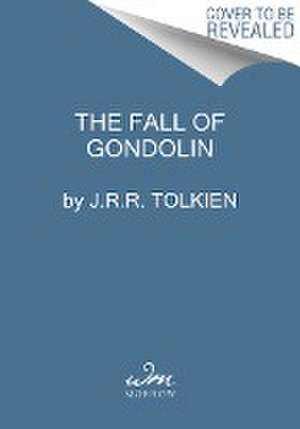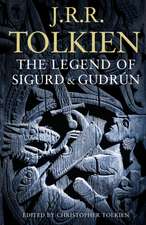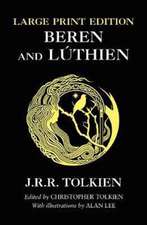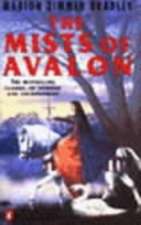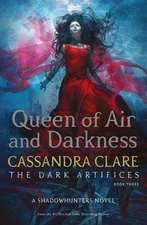The Fall of Gondolin
Autor J. R. R. Tolkienen Limba Engleză Paperback – 20 feb 2024
In the Tale of The Fall of Gondolin are two of the greatest powers in the world. There is Morgoth of the uttermost evil, unseen in this story but ruling over a vast military power from his fortress of Angband. Deeply opposed to Morgoth is Ulmo, second in might only to Manwë, chief of the Valar.
Central to this enmity of the gods is the city of Gondolin, beautiful but undiscoverable. It was built and peopled by Noldorin Elves who, when they dwelt in Valinor, the land of the gods, rebelled against their rule and fled to Middle-earth. Turgon King of Gondolin is hated and feared above all his enemies by Morgoth, who seeks in vain to discover the marvellously hidden city, while the gods in Valinor in heated debate largely refuse to intervene in support of Ulmo's desires and designs.
Into this world comes Tuor, cousin of Túrin, the instrument of Ulmo's designs. Guided unseen by him Tuor sets out from the land of his birth on the fearful journey to Gondolin, and in one of the most arresting moments in the history of Middle-earth the sea-god himself appears to him, rising out of the ocean in the midst of a storm. In Gondolin he becomes great; he is wedded to Idril, Turgon's daughter, and their son is Eärendel, whose birth and profound importance in days to come is foreseen by Ulmo.
At last comes the terrible ending. Morgoth learns through an act of supreme treachery all that he needs to mount a devastating attack on the city, with Balrogs and dragons and numberless Orcs. After a minutely observed account of the fall of Gondolin, the tale ends with the escape of Túrin and Idril, with the child Eärendel, looking back from a cleft in the mountains as they flee southward, at the blazing wreckage of their city. They were journeying into a new story, the Tale of Eärendel, which Tolkien never wrote, but which is sketched out in this book from other sources.
Following his presentation of Beren and Lúthien Christopher Tolkien has used the same 'history in sequence' mode in the writing of this edition of The Fall of Gondolin. In the words of J.R.R. Tolkien, it was 'the first real story of this imaginary world' and, together with Beren and Lúthien and The Children of Húrin, he regarded it as one of the three 'Great Tales' of the Elder Days.
| Toate formatele și edițiile | Preț | Express |
|---|---|---|
| Paperback (4) | 56.85 lei 3-5 săpt. | +7.03 lei 6-10 zile |
| HarperCollins Publishers – 12 mai 2022 | 56.85 lei 3-5 săpt. | +7.03 lei 6-10 zile |
| HarperCollins Publishers – 26 oct 2023 | 63.35 lei 3-5 săpt. | +8.47 lei 6-10 zile |
| Harpercollins – 20 feb 2024 | 100.99 lei 3-5 săpt. | |
| HarperCollins Publishers – 18 oct 2018 | 115.09 lei 3-5 săpt. | +19.08 lei 6-10 zile |
| Hardback (1) | 169.85 lei 3-5 săpt. | +25.51 lei 6-10 zile |
| HarperCollins Publishers – 23 aug 2018 | 169.85 lei 3-5 săpt. | +25.51 lei 6-10 zile |
| CD-Audio (1) | 165.12 lei 3-5 săpt. | +8.35 lei 6-10 zile |
| HarperCollins Publishers – 11 noi 2020 | 165.12 lei 3-5 săpt. | +8.35 lei 6-10 zile |
Preț: 100.99 lei
Nou
19.33€ • 20.27$ • 16.09£
Carte disponibilă
Livrare economică 12-26 martie
Specificații
ISBN-10: 0063376393
Pagini: 304
Dimensiuni: 140 x 210 x 17 mm
Greutate: 0.24 kg
Editura: Harpercollins
Notă biografică
Descriere
In the Tale of The Fall of Gondolin are two of the greatest powers in the world. There is Morgoth of the uttermost evil, unseen in this story but ruling over a vast military power from his fortress of Angband. Deeply opposed to Morgoth is Ulmo, second in might only to Manwe, chief of the Valar.
Central to this enmity of the gods is the city of Gondolin, beautiful but undiscoverable. It was built and peopled by Noldorin Elves who, when they dwelt in Valinor, the land of the gods, rebelled against their rule and fled to Middle-earth. Turgon King of Gondolin is hated and feared above all his enemies by Morgoth, who seeks in vain to discover the marvellously hidden city, while the gods in Valinor in heated debate largely refuse to intervene in support of Ulmo's desires and designs.
Into this world comes Tuor, cousin of Turin, the instrument of Ulmo's designs. Guided unseen by him Tuor sets out from the land of his birth on the fearful journey to Gondolin, and in one of the most arresting moments in the history of Middle-earth the sea-god himself appears to him, rising out of the ocean in the midst of a storm. In Gondolin he becomes great; he is wedded to Idril, Turgon's daughter, and their son is Earendel, whose birth and profound importance in days to come is foreseen by Ulmo.
At last comes the terrible ending. Morgoth learns through an act of supreme treachery all that he needs to mount a devastating attack on the city, with Balrogs and dragons and numberless Orcs. After a minutely observed account of the fall of Gondolin, the tale ends with the escape of Tuor and Idril, with the child Earendel, looking back from a cleft in the mountains as they flee southward, at the blazing wreckage of their city.
They were journeying into a new story, the Tale of Earendel, which Tolkien never wrote, but which is sketched out in this book from other sources. Following his presentation of Beren and Luthien Christopher Tolkien has used the same 'history in sequence' mode in the writing of this edition of The Fall of Gondolin. In the words of J.R.R.
Tolkien, it was `the first real story of this imaginary world' and, together with Beren and Luthien and The Children of Hurin, he regarded it as one of the three 'Great Tales' of the Elder Days.
